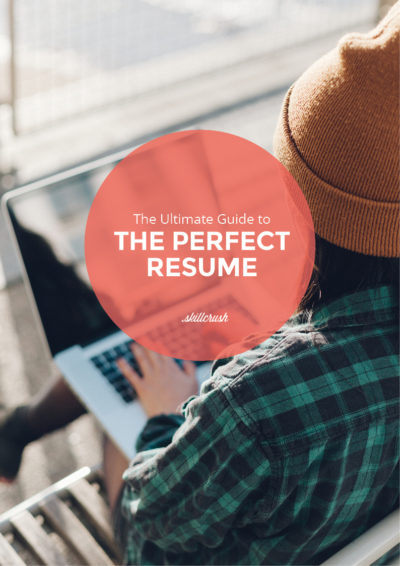
Get Our FREE Guide to the Perfect Resume
Learn how to write resumes that get you HIRED with our FREE, 30+ page ebook.
There’s plenty of bad job search advice out there—and tons of the conventional wisdom about the job hunt is actually counterproductive. So how do job seekers decide what advice to listen to and what to disregard?
I’ve rounded up four commonly-referenced job tips that flow through job hunting advice circles, and broken down why you shouldn’t pay them any attention.
A quick disclaimer: I’ve given all the below pieces of advice in some form or another myself, so I’m not saying these tips are entirely incorrect. After all, there is a reason they are so often quoted. What is important to remember is that there is no one-size-fits-all in the job market. Hiring is based on human-to-human interaction, so you always want to consider your specific situation before applying any tip or strategy, no matter how powerful or practical it seems. Read on for advice you should ignore—or at least make sure is a fit for you and your life before blindly following.
Myth #1: Follow up with the recruiter to move the process along.
Yes, you want to follow up with the recruiters or hiring manager who has been part of the process. Yes, it can help to move the process along. However, if the process slows down to the point that you’ll need to follow up for several weeks to stay front of mind, stop asking specifically about the process after one or two inquiries. You’ll need to make your follow-up about something other than process, or else you’ll come across as nagging and desperate.
A more complete tip would be to plan your follow-up; it may be fine just to try and move the process along, or you may want to connect on a different topic altogether. Try bringing up something you discussed in your interview, or sending an article along that might be of interest to your interviewer with a note about how the article made you think of them.
Myth #2: If you spent less than a year on the job, just omit it from your resume.
If you have one short stint on your resume, you might want to omit it. But a short stint isn’t necessarily bad, so omitting it from your resume might remove useful information. Additionally, if you have several short stints in your employment history and stick faithfully to this rule, your resume chronology will soon look like swiss cheese.
Instead, consider omitting a singular short stint from your resume, and to weigh the pros and cons of your specific situation. There’s plenty of reasons for leaving a job before the one-year mark, and you can explain that you got a better job offer or your life circumstances changed in your cover letter or interview. With proper preparation and explanation, your super-full resume can look flexible and adaptable rather than flakey—and you’ll show you have tons of diverse experience.
Myth #3: Always dress up for an interview.
You definitely want to appear polished and professional, but that doesn’t always mean dressing up. Take for example, a senior candidate who interviewed at an e-retailer. His choice to wear a suit came across as overdressed for the environment where people wore jeans and sneakers, and underscored that he came from a more traditional, brick-and-mortar company.
Instead, dress appropriately for an interview, where appropriate is determined not by any one standard, but by where you are interviewing. Do your research on the company: Check out people’s LinkedIn photos, look on job boards like Glassdoor.com for photos of the office itself and how the people dress, and read up on the company culture. You’ll want to underscore that you’re a fit with the company and the people who work there, not just the best dressed.
Myth #4: Do not share a salary number.
There exists a widespread rumor that whoever shares the first number in a salary negotiation always loses, but that’s simply not true. Whoever speaks first anchors the negotiation, so if a company is planning to low-ball you and you speak first with a much higher number, then they know they’ll have to negotiate hard to drive your salary down (or perhaps will know better than to low-ball you). This is only one example of when sharing a salary number isn’t a bad idea.
Instead, research thoroughly the market value for the role you’re discussing, get comfortable with asking for that range (or higher!), and be willing to share your number if you feel it would help move the negotiation to where you want it to be.
A version of this post previously appeared on Ellevate Network.
Caroline Ceniza-Levine is a career change expert and author of Jump Ship: 10 Steps To Starting A New Career. Her latest career change is running CostaRicaFIRE.com.

Get Our FREE Guide to the Perfect Resume
Learn how to write resumes that get you HIRED with our FREE, 30+ page ebook.


